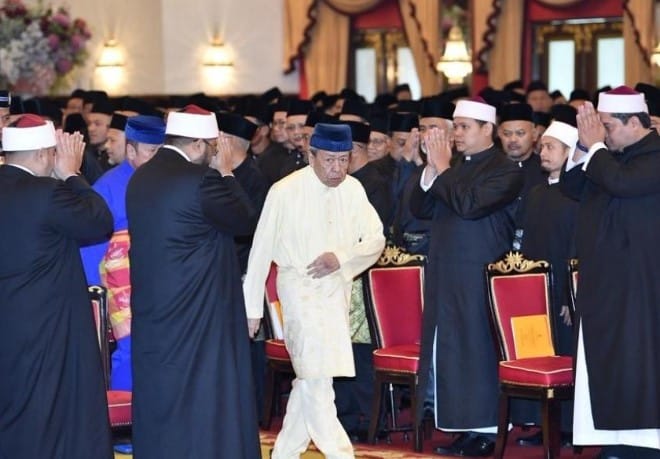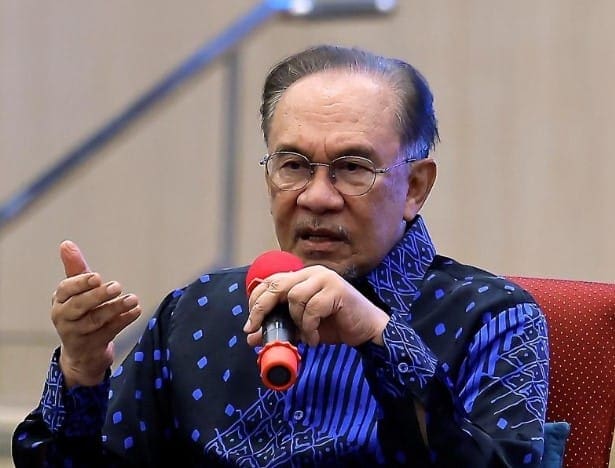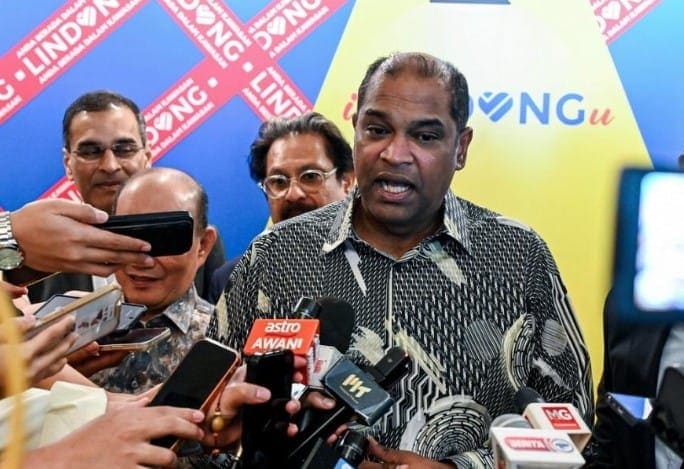
KUALA LUMPUR, Sept 18 – Dr Mahathir Mohamad’s official visit to Sabah over the weekend came with some great promises and a reality check for the people of the two Borneo states.
Maintaining the Pakatan Harapan pledge in the manifesto for greater autonomy, the prime minister took it up a notch saying that the new government will seek to revert the status of Sabah and Sarawak to that equal partners with the peninsula as per the Malaysia Agreement 1963 (MA63).
However, the promise made at the Malaysia Day celebrations at Padang Merdeka in Kota Kinabalu on Sunday was quickly countered by Mahathir himself just 24 hours later with the excuse that PH needs a two-thirds majority in the Dewan Rakyat to achieve it.
The prime minister said that it would take time for PH to make the amendments as they were still working on the numbers to achieve a two-thirds majority.
Need for two-thirds majority
“We have to figure out how we can achieve a two-thirds majority.
“But in the meantime we will study what needs to be repealed and substituted with new provisions in the Federal Constitution,” Dr Mahathir was quoted as saying by The Star.
The coalition currently has 125 out of 222 seats in the Dewan Rakyat, and the support of 148 MPs are needed before the Federal Constitution can be amended.
Currently, Barisan Nasional has 54 seats (Umno 51, MIC 2, MCA 1) while PAS has 18. Gabungan Parti Sarawak (GPS), the new coalition of ex-BN parties from Sarawak has 19 seats, while the remaining seats comprise one each from Sabah parties STAR, PBS and PBRS, as well as three independents, two of which are from Sarawak.
PH could achieve two-thirds “support”
Observers have noted that with the BN and PAS combination of 72 seats, PH actually does have the edge in requiring the two-thirds majority needed, especially for an issue that is close to the heart of MPs from Sabah and Sarawak who are not from the coalition.
So, aside from 125 seats already in hand, PH should be able to count on the 19 from GPS and three from the now unaffiliated Sabah parties. This brings the total to 147, just one short.
Surely, the ruling government can now convince at least one of the three independents – two from Perak and one from Melaka, all of whom left Umno/BN after GE14 – to swing their vote to help Sabah and Sarawak become truly equal partners in the Federation of Malaysia.
20% oil royalty remains a promise
The other big promise that Mahathir brought up was on the 20% royalty to Sabah and Sarawak from the oil that Petronas produces off the two states.
That was a key part of the manifesto for East Malaysians and something the PH component parties have been harping on for many years.
Now the ball is in their court, it would seem the obvious move for PH to let Sabah and Sarawak, let alone Kelantan and Terengganu, get the revenue they have been asking for.
Petronas’ future at stake
However, there is a new twist to the promise made in the manifesto it would seem, as Petronas’ very future is now being tied to the royalty level.
When asked on how soon the increase in oil royalty to oil producing states from the existing 5% to 20% would take place, the prime minister said it has to be done without Petronas incurring losses.
“We do not want to kill Petronas. While we feel there is a need to re-look the 5% oil royalty, we need to maintain Petronas’ strength.
“That 5% is based on operational costs, it is part of it and is a big amount. If we take away 40% from the operating costs for example, Petronas will lose money.
“So if you reduce Petronas to just collecting royalty, then we lose a lot of things,” he was quoted as saying by the New Straits Times.
There has been no response from PH leaders from Sabah and Sarawak.
The question that is on most people’s minds, however, is how has the 5% been calculated all these years. That would clear up any confusion as well as prevent possible backlash against PH which had made the 20% royalty promise a key issue before the 14th General Election last May.
-NMT





More Stories
Socso’s Lindung 24/7 Scheme To Be Implemented By Mid-Year – Ramanan
Trade Performance, Year One Pupil Entry Among Focus Of Today’s Dewan Rakyat Sitting
President Putin Welcomes Sultan Ibrahim At Hermitage Museum